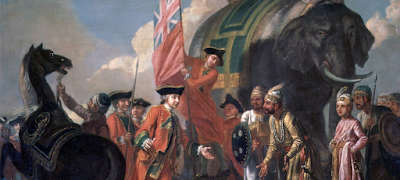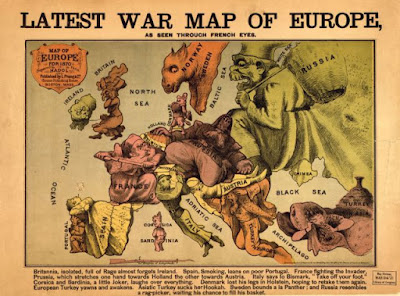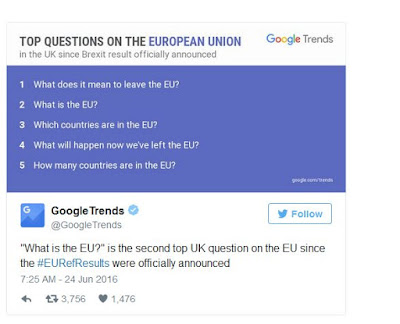Wednesday, Jun 29,
2016 05:30 AM EST
*September 6, 1983: Two Marines were killed during a lengthy rocket assault on the Marine base at Beirut’s airport.
To the surprise of no one, the House Select Committee's eighth report is expected to contain no major revelations
Trey Gowdy (Credit: AP/Jacquelyn Martin)
This article
originally appeared on Media Matters.
To the surprise of no one, the
Republicans’ four-year partisan inquisition surrounding the terrorist attack on
the American compound in Benghazi, Libya, is likely ending with a whimper. With
the House Select Committee on Benghazi finally releasing its findings, and
the report representing the eighth and (likely) final government investigation into the deadly event, the Benghazi
hoax, as sponsored by Fox News for four years, finally comes
to an impotent and ignominious end.
Early indications
are that the report, as expected, provides
no major revelations. Already undercut by a report from Democratic members of
the Benghazi committee that further debunked right-wing myths about the
attack, the GOP’s long-awaited Benghazi report is in danger of being
met with collective shoulder shrugs.
Even Donald Trump seems relatively
uninterested in kicking the Benghazi can around the campaign trail this year.
Yes, he’s made a couple passing references to it and implied grave misdeeds by
Hillary Clinton. But there’s been no serious push on his part to highlight the
GOP’s endless pursuit. (Last year, Trump actuallycriticized the Republicans’ investigations as being
incompetent.)
So if Benghazi isn’t being used as
an election year battering ram against the Democrats, what has been the point
of committee chairman Trey Gowdy’s comically extended inquiry? Anybody with a pulse and a political
calendar realized that the final GOP Benghazi report, with its 2016 summertime
release, was designed to disrupt Clinton’s White House run. Why else would the
committee’s work be extended for two-plus years when it likely could have been
completed in six or seven months? (Two years to hold four hearings?)
Unsure they could defeat Clinton at
the ballot box, and lately even more unsure that Trump is competent enough to run a
White House campaign, Republicans were hoping and praying for an investigative
intervention to stop Clinton.
It ain’t happening with Benghazi.
But anyone who followed the facts, or who reads Media Matters,
knew that a very long time ago.
The whole mindless, partisan endeavor shines a light on what’s gone
completely wrong with the Republican Party and the right-wing media. It’s about
how shallow, endlessly debunked conspiracies and money-sucking
investigations have replaced any attempt to govern and legislate.
The fact that the
GOP’s Benghazi gotcha pursuits have stretched through the entirety of
Obama’s second term, and that Obama stands poised to leave office with
surging approval ratings, tells you all need to know about the
crippling disconnect between the right-wing media and the real world today.
(Fox’s Eric Bolling: “I think Benghazi’s a much bigger scandal
than Watergate.”)
But let’s never forget that
the Beltway press claims partial ownership of this slow-motion fiasco, too. The
press certainly owns the first three years of the Benghazi charade when
journalists breathlessly amplified every slipshod allegation leaked from Republicans on Capitol Hill, or followed
Fox News’ lead in hyping an endless series of supposed revelations about the
attacks. Sometimes we couldn’t tell who was more anxious to uncover an Obama or
Clinton-related “scandal,” the press or partisan conservatives.
If I had to estimate, I’d say it
took until October 2015 — three entire years of Benghazi news dead ends —
before the D.C. press mostly conceded there’s no there there with regards to
this so-called scandal. It took Hillary Clinton testifying for 11 hours on
Capitol Hill and Republicans completely unable to advance, let alone confirm,
their wild conspiracy theories before the press largely seemed to acknowledge
the futility of the whole enterprise. (Accidental truth telling in 2015 by some GOP House members
regarding the motivation about the Benghazi committee likely also convinced
reporters the endeavor was largely a scam.)
Unfortunately, this was after several Beltway journalists’ reputations took serious
hits when they were caught trusting dubious sources who lied about
Benghazi revelations.
Meanwhile, here’s some distressing context. I wrote
this more than 1,300 days ago:
Benghazi has entered the realm of churning, right-wing
myth making. (Think Waco and Vince Foster). The story has become completely detached
from reality, and the twisted narrative feeds off itself with constant misinformation that’s repeatedly presented as
‘fact.’
I certainly never thought in the
fall of 2012 that four years later I’d still be pointing the Benghazi
hoax and highlighting the obvious absurdity of the pursuit. Overall, Media
Matters has posed hundreds of fact-checking items on Benghazi and
we’ll continue to do so as long as conservatives cling to the fantasy. But that
will be much harder to do now without a congressional inquiry to give the wild
claims shape.
The larger point is that
Republicans and Fox News have wasted untold time, money and energy pushing a
thoroughly discredited pipe dream about how Obama and Clinton are supposedly
monstrous people who chose to let four Americans die at the hands of Islamic
terrorists and then lied about it. Worse, Obama watched video “in real time” while the terrorists snuffed out American
lives. “Support wasn’t given,” in the words of Karl Rove.
Vile, vile lies.
This whole endeavor has been a
depressing reflection on how broken the conservative movement has become, and
also how the Beltway press simultaneously takes its marching orders from the
scandal-obsessed right wing. Like Republicans, journalists seemed to be eagerly
holding out hope for an Obama or Clinton scandal to emerge from the Benghazi
investigations.
And of course that faulty blueprint
hasn’t just applied to the Benghazi “scandal.” As noted in September last
year, ABC World News Tonight, CBS Evening News,
and NBC Nightly News together spent just as much time covering Clinton’s email
controversy as they spent covering the substance of her entire presidential
campaign.
If we’re truly bidding farewell to
Fox News’ Benghazi conspiracy hoax (fingers crossed), there’s another point
about context that’s worth stressing one last time.
I think one way the GOP and
conservative media were able to string the serious press along on Benghazi was
that they framed the Benghazi terror attack as an almost-unprecedented event in
American history (sadly, it was not) and one that exposed unheard of security
failures by Obama’s White House and Clinton’s State Department; it was
supposedly an epic fiasco that demanded countless
investigations.
What the press for most of the last
four years refused to do is put the Benghazi terror attack in any kind of
historical context.
Consider these facts under
President Ronald Reagan:
*April 18, 1983: Bombing of U.S. Embassy in Beirut. 63
people were killed, including 17 Americans, includingthe
CIA’s chief analyst in the Middle East, and the Beirut station chief.
*September 6, 1983: Two Marines were killed during a lengthy rocket assault on the Marine base at Beirut’s airport.
*Oct. 23, 1983: Bombing of Marine barracks in Beirut. A
suicide bomber detonated a truck full of explosives at a U.S. Marine barracks;
241 U.S. service personnel were killed.
*Sept. 20, 1984: Bombing of U.S. Embassy annex. A truck bomb
exploded in Aukar, northeast of Beirut, outside the
annex, killing 24 people, including two U.S. military personnel.
During an 18-month span, U.S.
facilities in and around Beirut were attacked by terrorists four times, killing
330 people, including 262 Americans.
There was exactly one congressional investigation into the Beirut
debacle.
Eric Boehlert, a former senior writer for
Salon, is the author of "Lapdogs: How the Press Rolled Over for
Bush."
Source: salon









